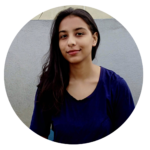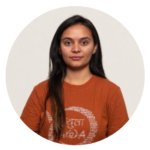Swostika Thapaliya, General Secretary and Youth Innovator
Swostika Thapaliya, 20, is an undergraduate student of public health at Central Department of Public Health, Maharajgunj. She is a perceptive individual who believes that the cause of the cause of every problem in the world is socio-economic, political or environmental, and one can transform the world only when these issues are addressed at its core. She likes exploring different places and ideas and finds solace in poetry.
Riju Dhakal, President of YUWA (2020-2022)
Former President of YUWA (2020-2022), Riju Dhakal recently earned her Bachelor of Public Health from the Central Department of Public Health, Institute of Medicine, Nepal. She has been an SRHR activist for the past two years and has been involved in national-level advocacy processes and evidence generation under YUWA. She is passionate about poetry, and in her free time, she enjoys traveling.


